Top House Republicans talk next steps in antisemitism probe
House GOP Conference Chair Elise Stefanik and House Education & Workforce Committee Chair Virginia Foxx spoke with Fox News Digital after hearing from Jewish university students about their experiences with antisemitism on campus.
Loving eyes, warm hugs and a happy life. That’s what Deborah Kalkoene remembers most about growing up with grandparents who were Holocaust survivors.
But the arms that gave her those hugs were tattooed with numbers — 175399 and 81774 — marking them as the property of the Nazi regime, a subject that would never come up in conversation but one that Kalkoene later decided would be her life’s work to share.
"They did not want to burden their children and grandchildren with their pain and sorrow," Kalkoene, 43, of Amstelveen, Netherlands, told Fox News Digital.
"In my family, the Second World War was not discussed at all," she said.
"The pain in their eyes was visible, and I grew up with their camp numbers on their arms. I never asked about it."
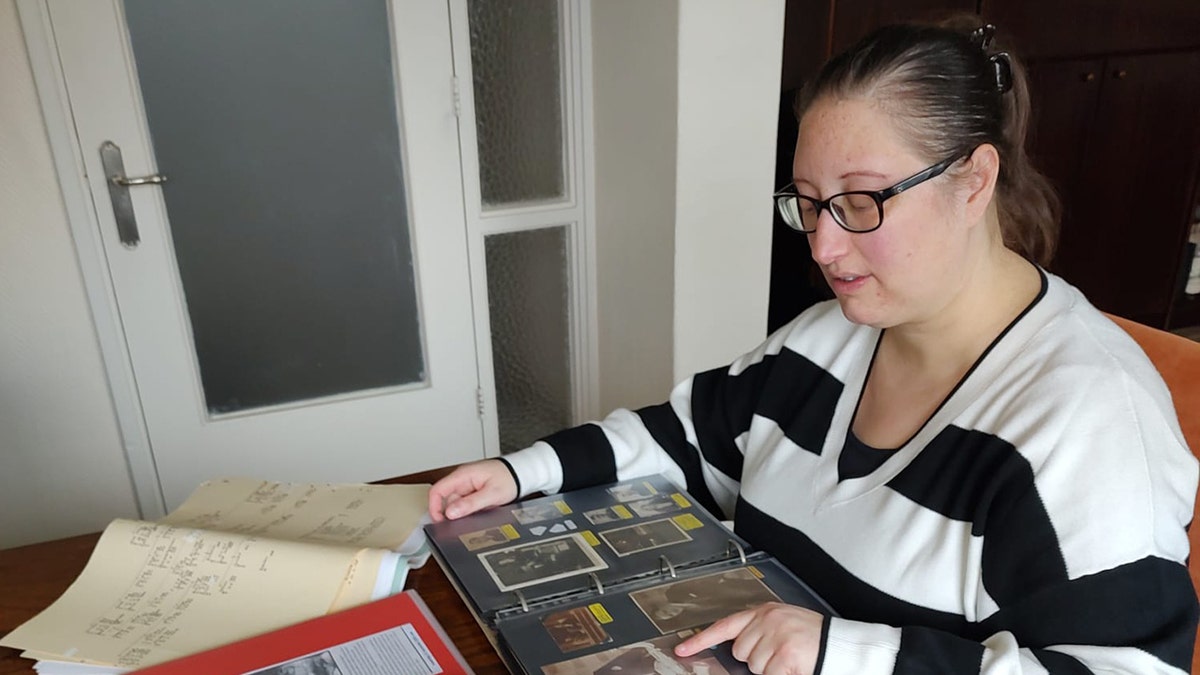
Deborah Kalkoene, 43, of Amstelveen, outside Amsterdam, sifts through photos and records compiled by her grandfather, Harry Kalkoene-Swaab, detailing his life’s journey, including his survival during the Holocaust. (Deborah Kalkoene)
With antisemitism on the rise today around the globe, Kalkoene is telling her grandparents’ stories in the hope of preventing new atrocities against Jews.
She said there are details of terrifying train rides, brutal work camps, treks through frigid temperatures, losing loved ones and nearly starving to dearth.
"It makes me anxious, and it all hits very close to home," Kalkoene said.
"After Oct. 7, stickers promoting Jew hatred were placed in Amstelveen and the surrounding area," she told Fox News Digital. "It is not safe to visibly wear anything that shows that I am Jewish. I find that quite worrying."
While her grandparents — Harry Kalkoene and Henny Kalkoene-Swaab of Amsterdam — never spoke of their experiences, Kalkoene said her grandfather spent decades creating an archive of their journeys.
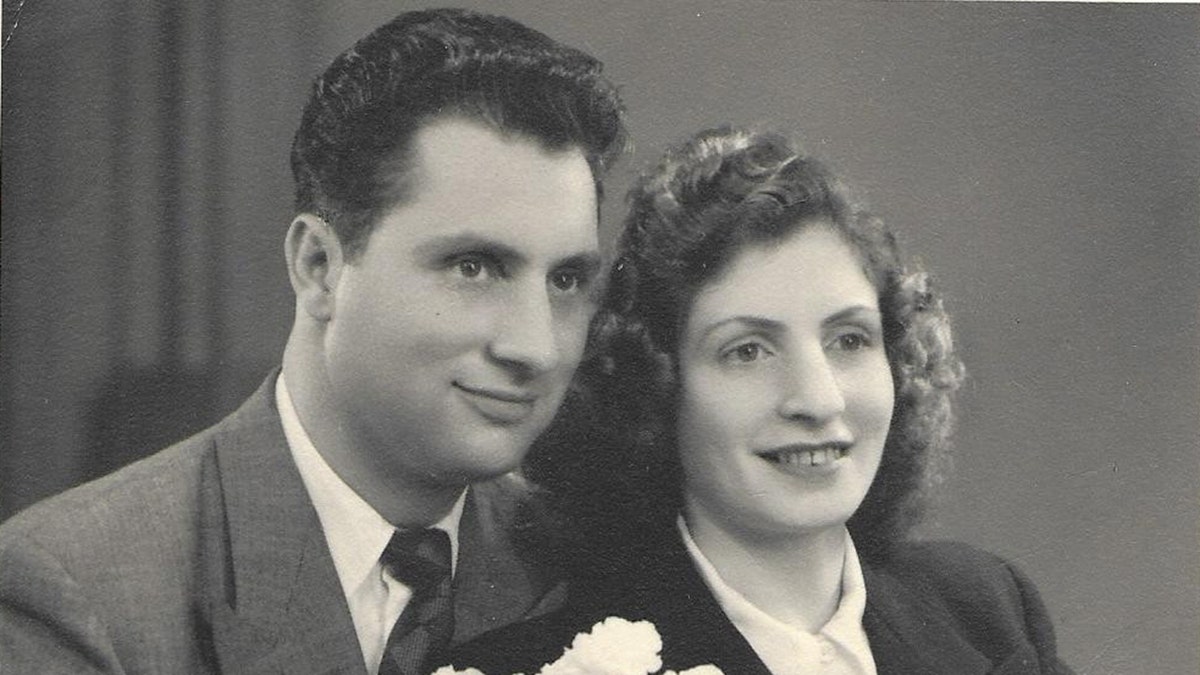
Harry Kalkoene and Henny Kalkoene-Swaab were married in Sept. 1949 after surviving separate but equally brutal experiences as Jewish teenagers from Amsterdam who were caught up in the horror of the Holocaust. (Deborah Kalkoene)
"The information I have comes from my grandparents themselves, all on paper and tape," Kalkoene said.
"After the Second World War, my grandfather told his story to the Red Cross and I have that report in my possession. It describes word by word what he had to endure."
HOLOCAUST REMEMBRANCE 2024 AS SCOPE OF DEATH, HORROR AND THREAT STILL HARD TO COMPREHEND TODAY
Kalkoene said that although her grandparents — who died in 2010 and 2015, respectively — could not bear to describe their suffering to their family, she feels a responsibility today to carry the load.
"Now that they don't live anymore, it won't hurt them," Kalkoene said.
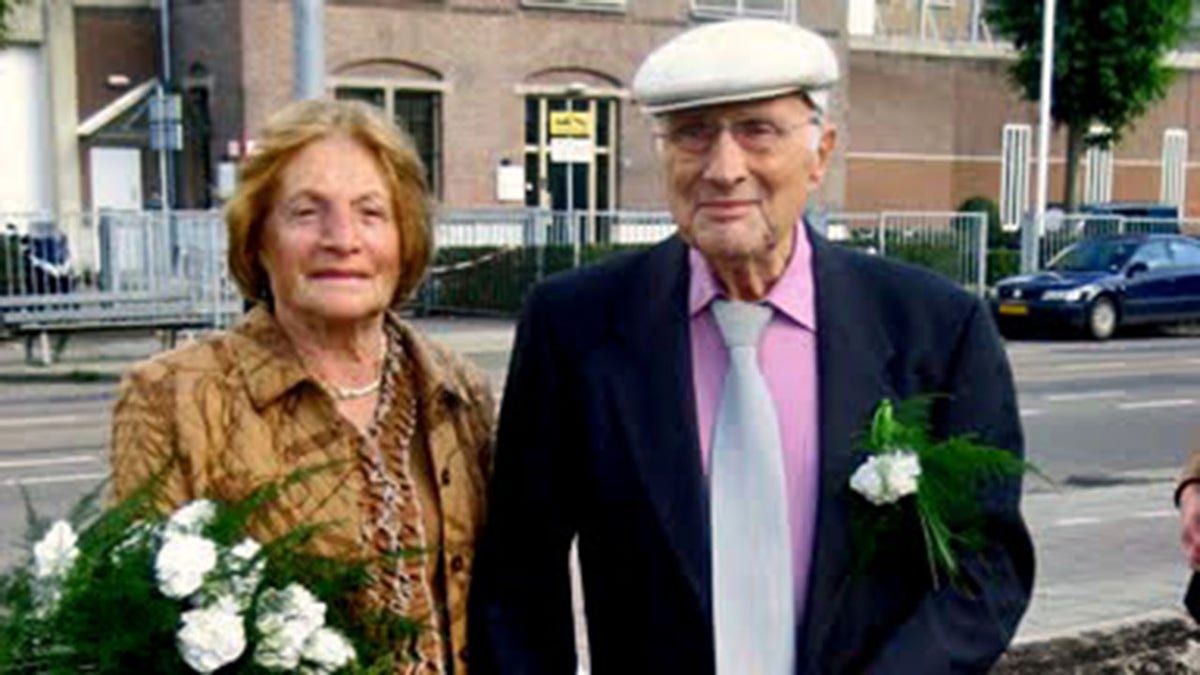
The couple celebrated their 60th wedding anniversary in 2009. They were married for 61 years until Harry Kalkoene passed away in 2010. (Deborah Kalkoene)
"It won't hurt them that I tell [others] about their pain. It feels [right] in my heart, in my blood, that I tell their stories now, especially [given] what’s going on in the world."
‘Report for employment’
Harry Kalkoene and Henny Kalkoene-Swaab did not know each other while they were growing up in different parts of Amsterdam.
FAR-LEFT HATRED OF JEWS TODAY ECHOES THE SOCIALISM AND ANTISEMITISM OF HITLER IN THE 1930S
They lived happy lives that came to an abrupt end, Kalkoene said, in 1942, when the Nazis issued an order for all Jewish men ages 17 to 40 to "report for employment in Germany."
The Kalkoene and Saab families, both parents and children, were among the first Amsterdam Jews to be affected, Kalkoene said.
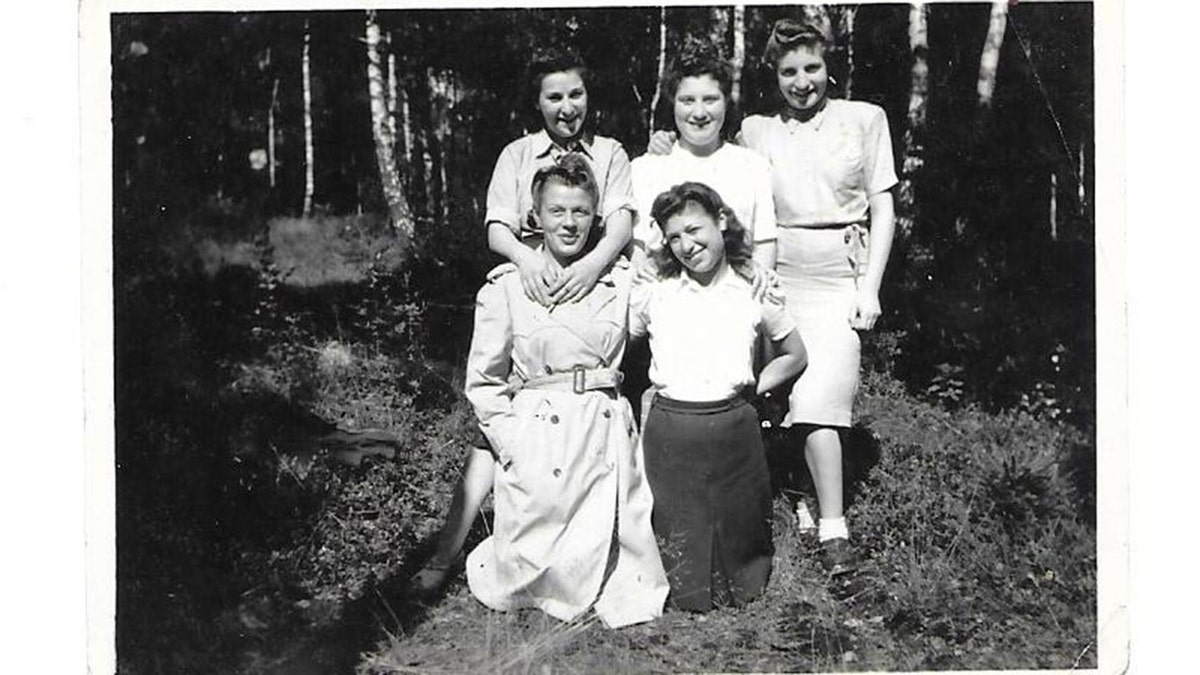
Henny Swaab, a survivor of the Holocaust, is pictured back row, far right. On May 4, 1945, after liberation, she traveled on a ferry from Denmark Harbor to Malmö, Sweden with other survivors, where they were quarantined for six weeks. Many of the women died of malnutrition. Deborah Kakloene's grandmother spent three months in Göteburg recovering from her ordeal. In August 1945, she returned to the Netherlands all alone. (Deborah Kalkoene)
Harry Kalkoene and Henny Swaab were just 19 and 18, respectively, at the time.
"My grandmother was arrested by the Grüne Polizei in Amsterdam because she was Jewish," Kalkoene said.
"She was transported via the Hollandsche Schouwburg in Amsterdam to Camp Vught, where she was imprisoned in March 1943. There, my grandmother had to hand over all her belongings and take off her clothes. She was given [concentration] camp clothes and camp clogs."
HOLOCAUST SURVIVORS GATHER AT 79TH ANNIVERSARY OF AUSCHWITZ LIBERATION FOR HISTORIC REMEMBRANCE DAY
From there, Henny Swaab was deported to Auschwitz — and on arrival she saw guards with large dogs on the platform, Kalkoene said.
"They had to undress immediately at the gate, where my grandmother [was] sprayed against lice," Kalkoene said.
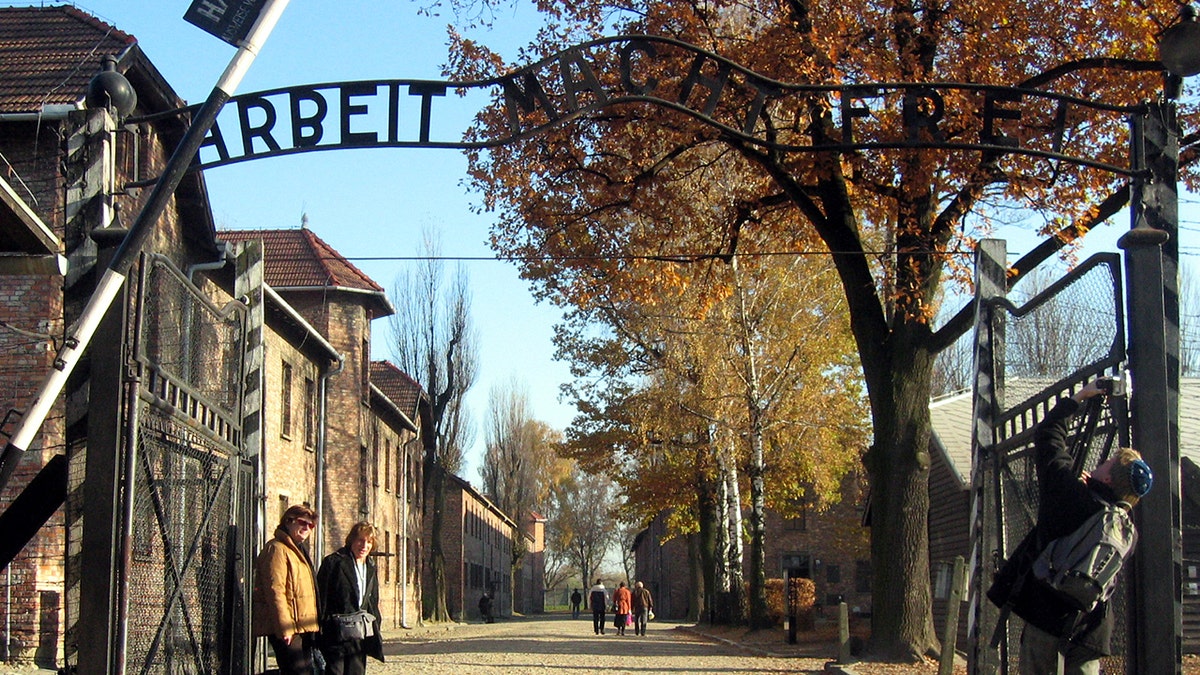
Standing at the infamous Arbeit Macht Frei gate in Nov. 2005, Henny Kalkoene-Swaab visited Auschwitz with her daughter and son-in-law. She laid flowers in memory of her murdered family. (Deborah Kalkoene)
"After arriving the same day, my grandmother had her camp number 81774 tattooed on her left arm. For my grandmother, this meant that she was no longer a name, but a number. She was not selected for the gas chambers but sent to a large factory to make airplane lamps, so she was protected by the work."
Henny Swaab worked there until the factory was bombed in Feb. 1945.
She was then forced to walk nearly 250 miles through the mountains in freezing temperatures — with many people dying of exposure, starvation and disease during the trek, Kalkoene said.
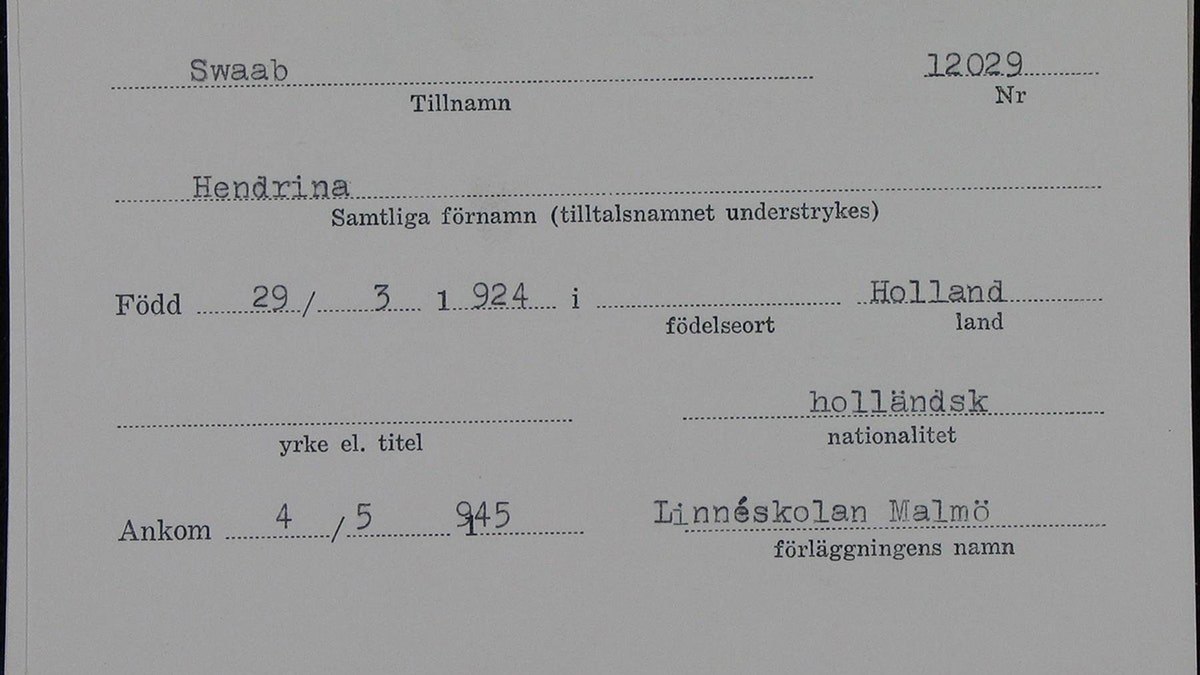
Henny Swaab’s registration card for her trip to Sweden after the war is pictured here. (Deborah Kalkoene)
Until her liberation in May 1945, Henny Swaab spent time in several camps in Poland — and was then sent to recover in a convalescent home in Sweden.
Her parents did not survive Auschwitz.
Arrested in 1943
Due to his work, Harry Kalkoene, for his part, was able to maintain his freedom for a time, but eventually he was arrested in 1943.
He, too, was taken by train to Camp Vught and spent time in various camps making fur vests for German soldiers before he was deported to Auschwitz.
To get there, he made a "hellish" three-day train trip in a car that was completely sealed with only a few cracks for air, Kalkoene said.
"The prisoners, including my grandfather, were crammed together on the floor," Kalkoene said.
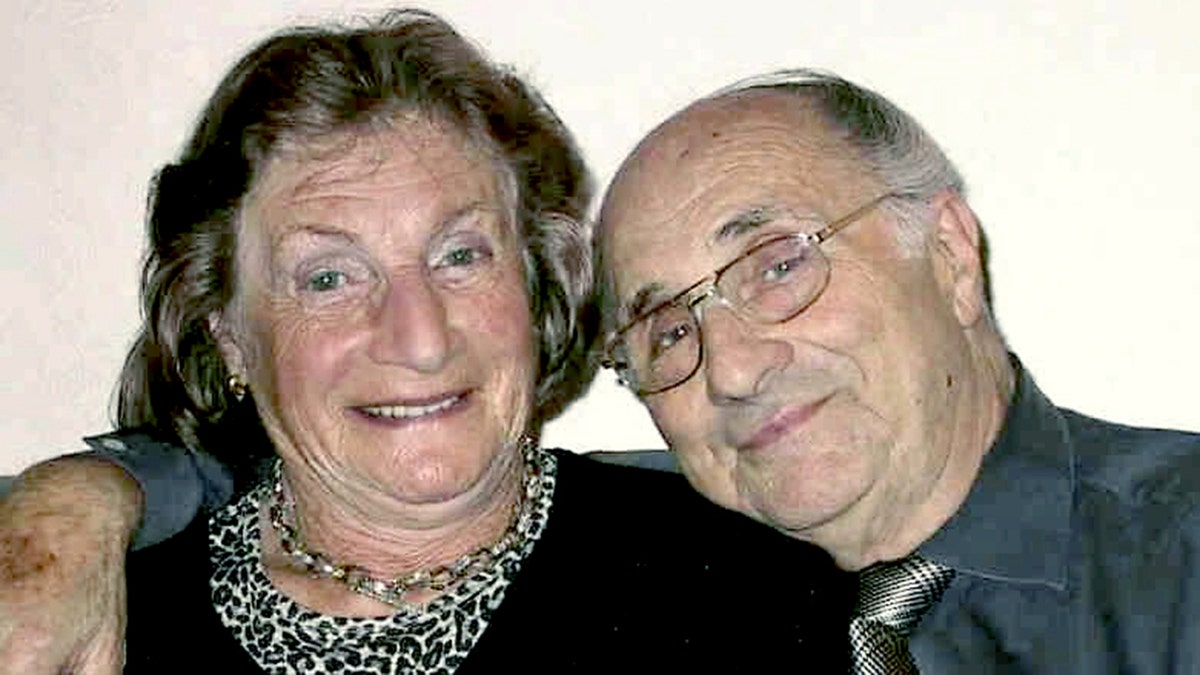
"Despite their pain and sadness, but with their resilience, they still got the most out of life," Deborah Kalkoene told Fox News Digital of her grandparents. "After a traumatic event, it is possible to still be happy … My grandfather and grandmother are a great example of this. They never lost their love for their city, Amsterdam. They were very caring, loved each other and their family very much." (Deborah Kalkoene)
"There was hardly any room to sit or lie down," Kalkoene added.
"There was no toilet. In the corner there was a bucket to do something in, which gave an unbearable smell. There was also no food or drink. During transport, prisoners died due to poor conditions. Escape was impossible, as the wagons were locked from the outside. If deportees tried to do this, they were shot dead by German train guards."
HOLOCAUST SURVIVOR IS FINALLY REUNITED WITH THE FAMILY THAT SAVED HIS LIFE
From there, Harry Kalkoene was transferred to Camp Gleiwitz. To avoid the gas chamber, he pretended to be able to weld and was put to work — which allowed him to survive.
When the camp was evacuated as the Russian Army approached to liberate Eastern Europe, Harry Kalkoene escaped in the chaos by hiding under a mattress.
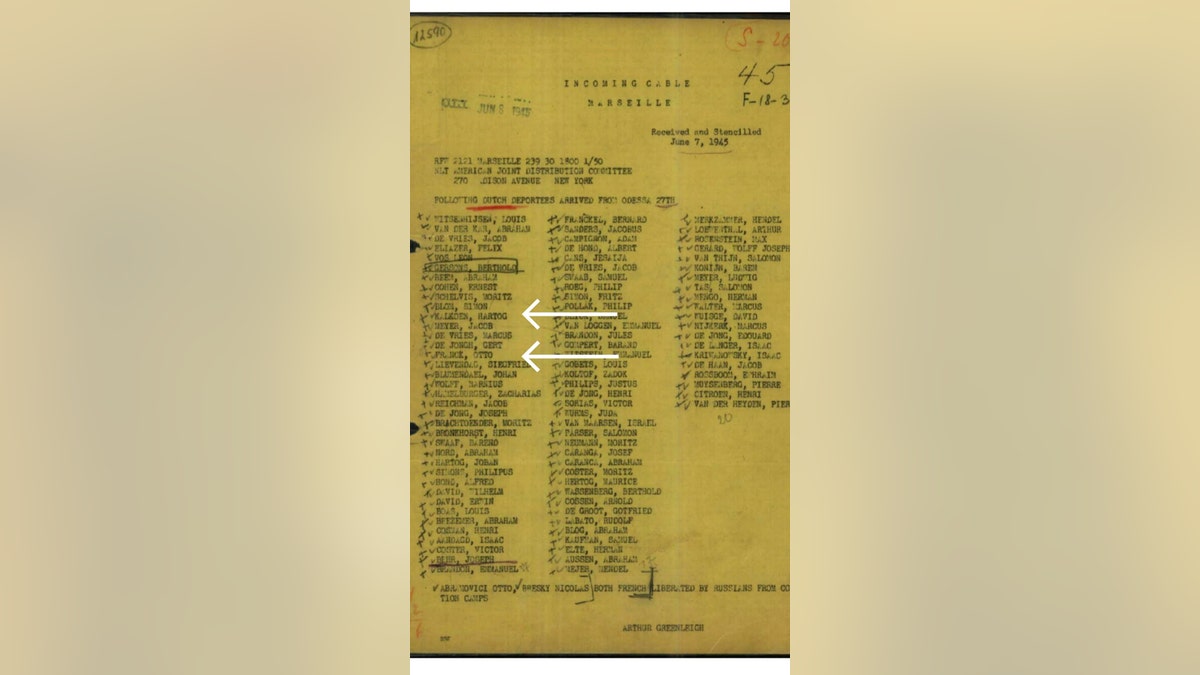
After the liberation in 1945, Harry (Hertog) Kalkoene and hundreds of other Auschwitz survivors traveled by ship from the Harbor of Odessa in Ukraine to Marseilles, France, where they were warmly welcomed. Pictured here is the transport list; Kalkoene’s name appears just a few lines above that of Otto Frank, who was on the same journey. (Deborah Kalkoene)
He and thousands of other survivors, including Ann Frank’s father, Otto Frank, made it to the Harbor of Odessa in Ukraine, where they boarded a ship called the Monowai and were taken to Marseilles, France.
Harry Kalkoene returned to the Netherlands by train in 1945 — but the rest of his family did not survive.
JEWISH HOLOCAUST VICTIM ANNE FRANK'S NAME STAYING PUT ON SCHOOL AFTER CONTROVERSY
Harry Kalkoene and Henny Swaab met in Amsterdam at a gathering place for survivors who had returned home.
They fell in love and got married in 1947, choosing to put the horrors they experienced behind them, Deborah Kalkoene said.
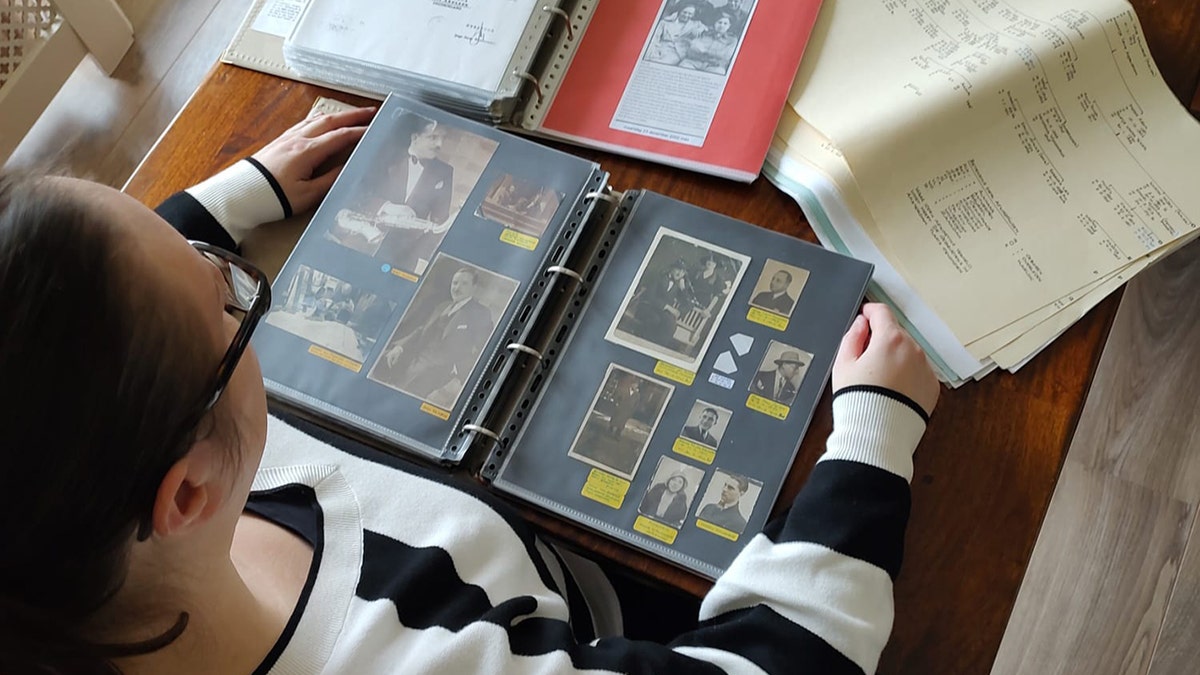
Deborah Kalkoene hopes that by sharing her grandparents' story, it will inspire "resilience and hope" in the lives of those who are suffering. (Deborah Kalkoene)
They had two children, plus four grandchildren and two great-grandchildren.
They celebrated their 60th wedding anniversary in 2009.
Kalkoene said that’s another reason she is committed to sharing her grandparents’ stories: to inspire resilience and hope in those who have suffered in their lives.
"It is possible to still be happy after a traumatic event," Kalkoene said. "My grandfather and grandmother are a great example of this. By telling their stories, they come to life a little and that is what I am committed to as a granddaughter of Auschwitz survivors."
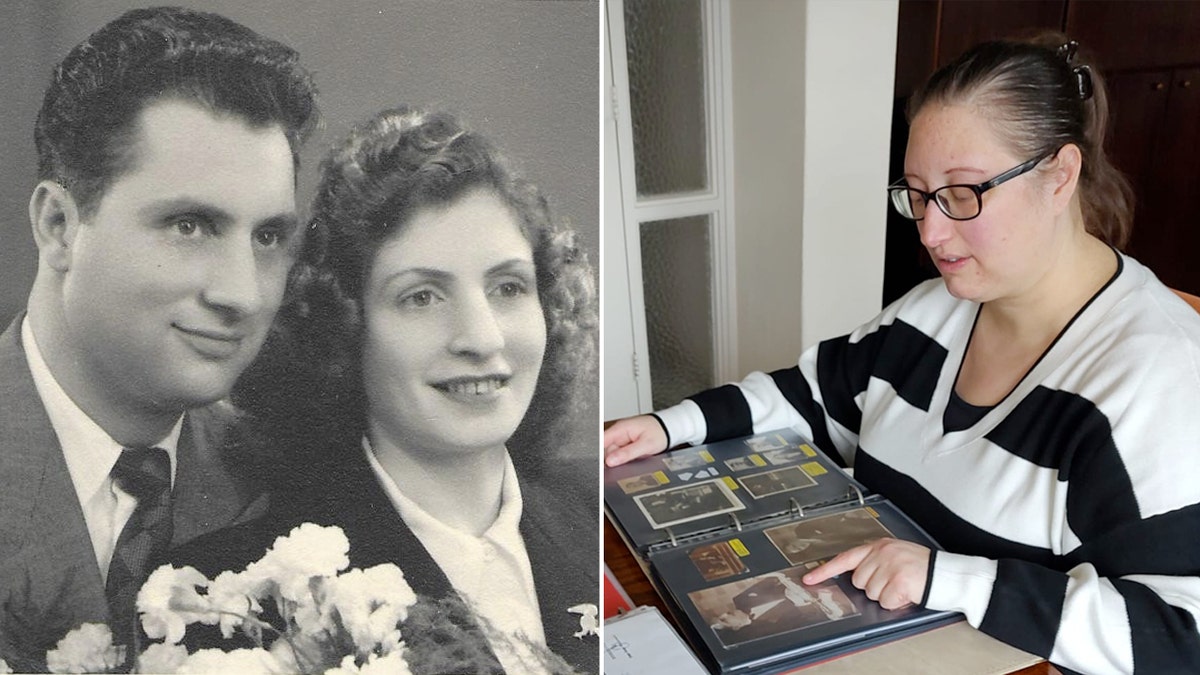
Kalkoene, at right, says it is "her duty" to talk about her family. She is sharing her grandparents' story so that it will never be forgotten. (Deborah Kalkoene)
Kalkoene said she considers it her duty to talk about her family, especially with antisemitism on the rise today.
She speaks to schoolchildren at every opportunity and said most students cannot believe what they hear about her grandparents.
CLICK HERE TO GET THE FOX NEWS APP
"When I think about what my ancestors had to endure during the Holocaust, it makes me deeply sad," she said.
CLICK HERE TO SIGN UP FOR OUR LIFESTYLE NEWSLETTER
"I hope [people] take away from my lessons that hatred can lead to something like war. With everything that happens in contemporary life, such as in Israel, Ukraine, Syria — as long as we keep talking about them, they will never be forgotten. And that is my life's work that I am committed to," she added.
For more Lifestyle articles, visit www.foxnews.com/lifestyle.










































